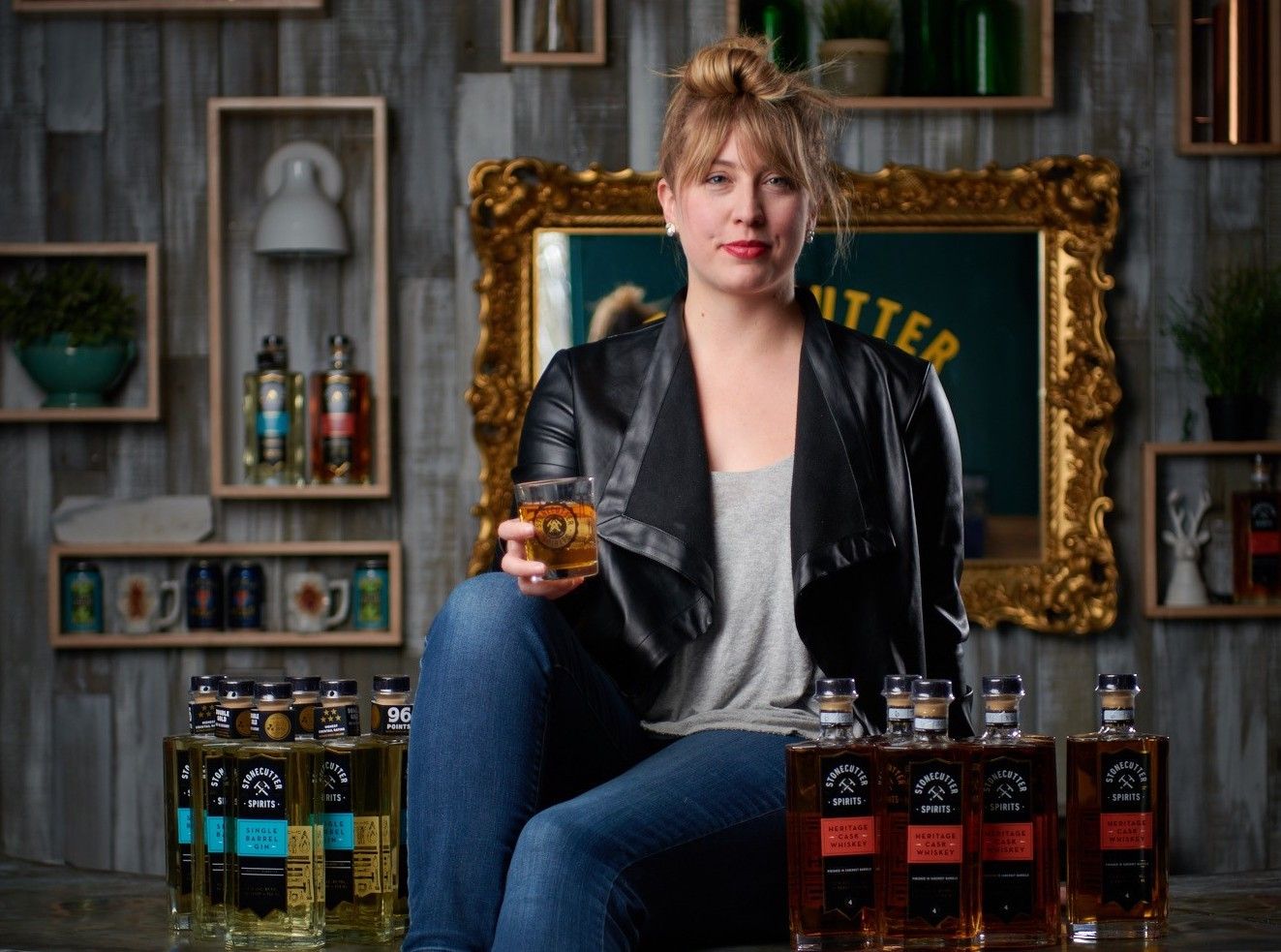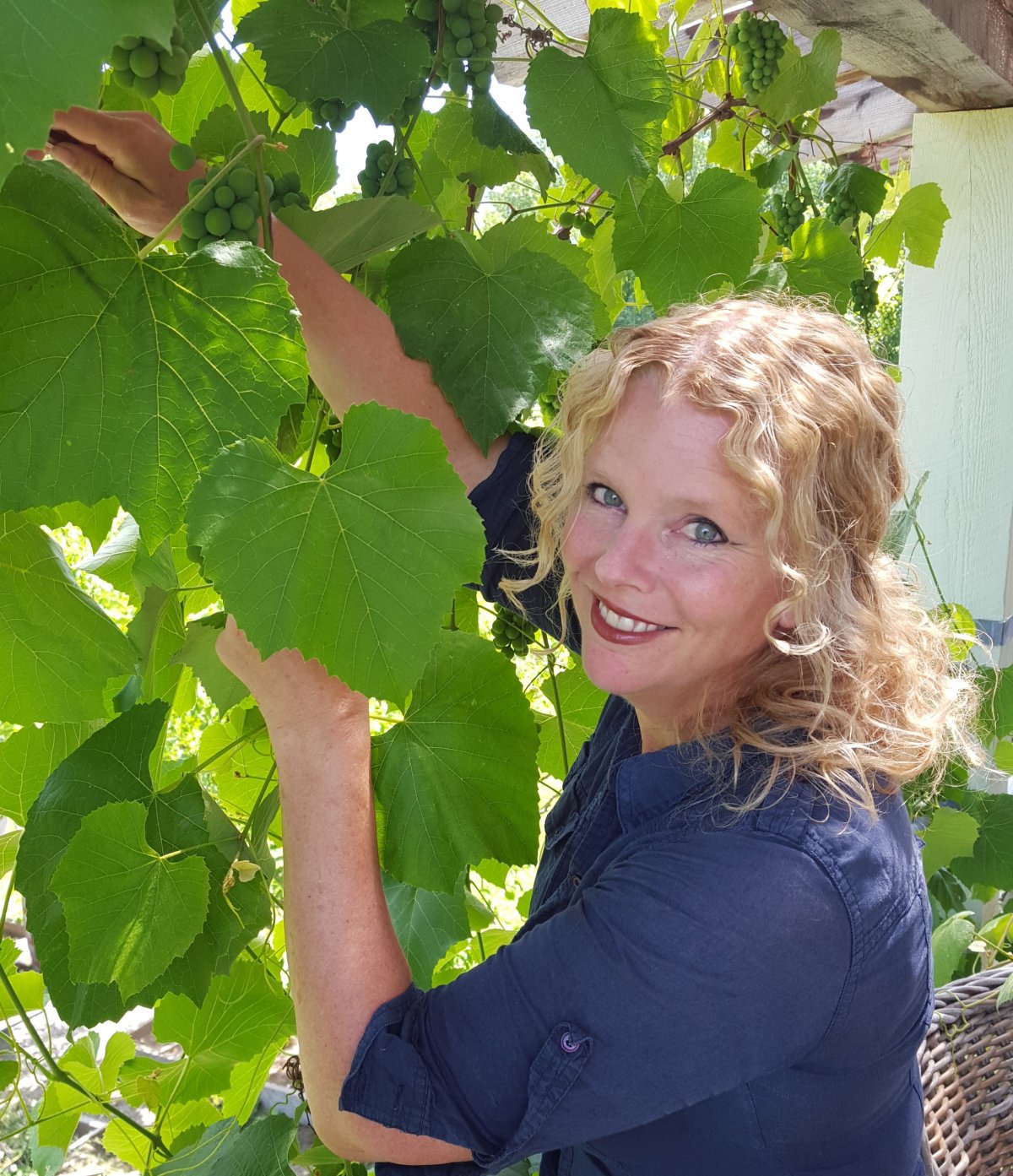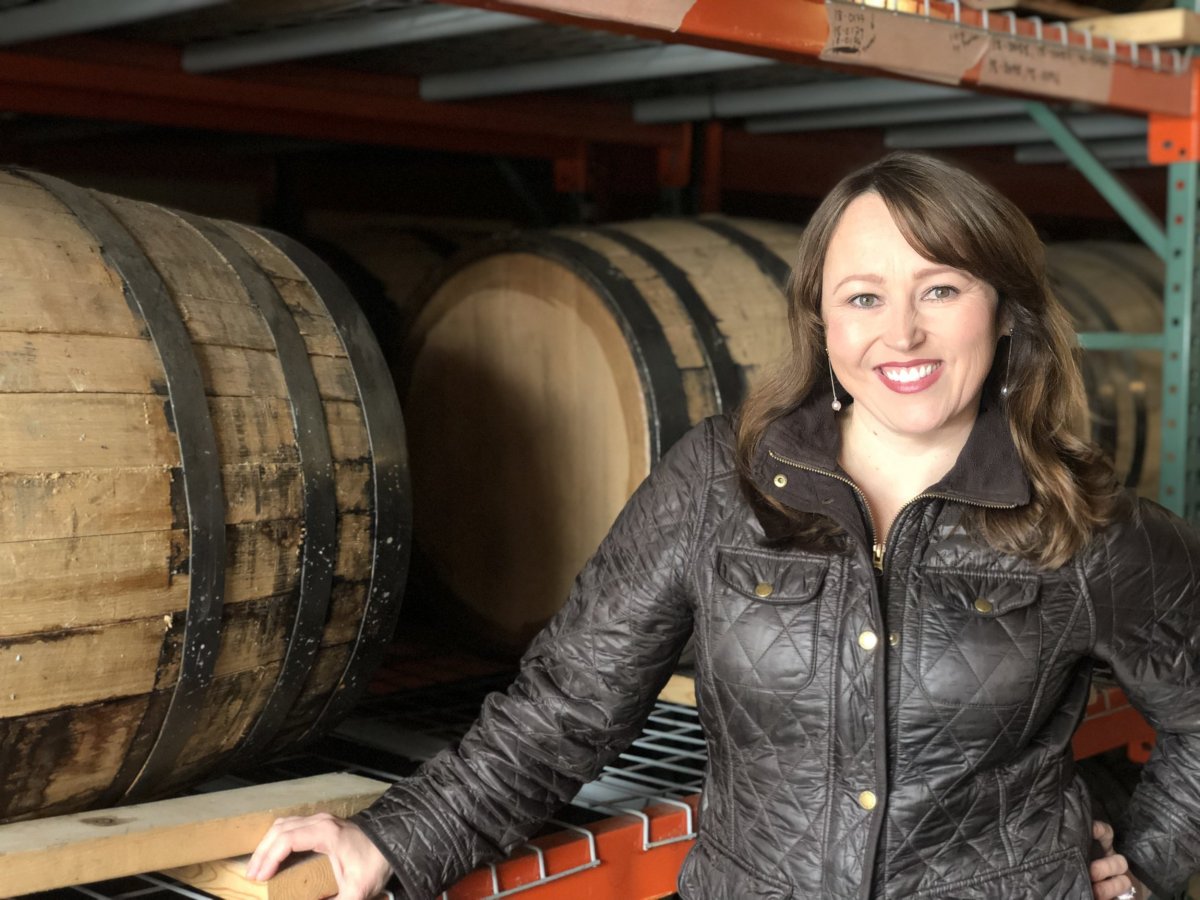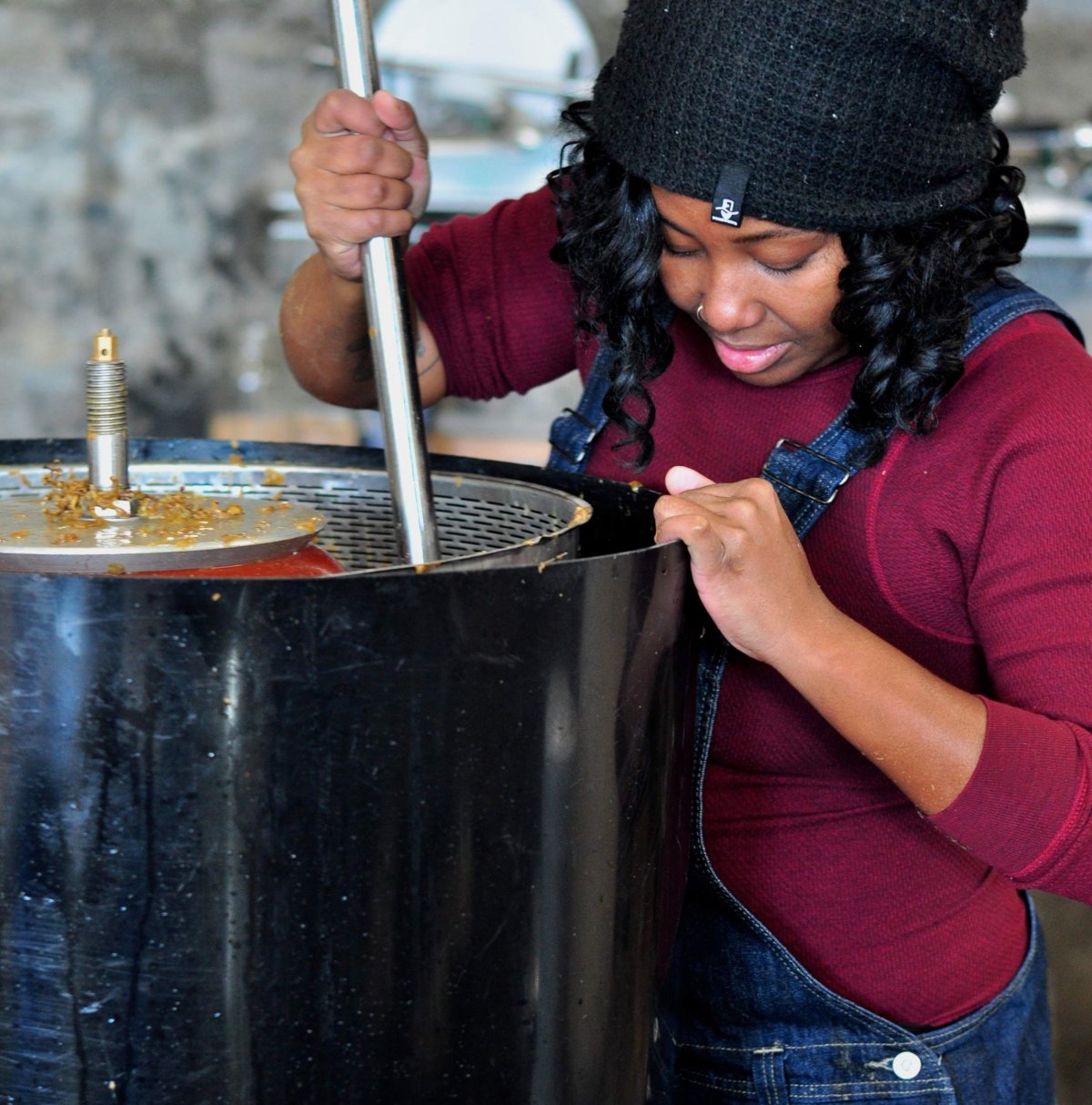
Alice Paul once said, "There will never be a new world order until women are a part of it." The suffragette probably didn't think this sentiment could also include the booze industry, but it still rings true for that traditionally male-dominated sphere.
Women are gaining traction in Vermont's booming beverage industry, leading the way in the escalating popularity of modern and traditional alcoholic drinks. With 11.5 breweries per capita, Vermont boasts the highest amount in the country, and is often credited with jump-starting the craft beer movement that's invaded everywhere from trendy Brooklyn bars to the fridges in local supermarkets. That lightning in a bottle (literally) is being captured not just with beer, but innovative wines, artisanal ciders and local spirits—and those at the helm of many of these beverage companies are women.
"Women-owned and/or operated business in Vermont are one of the fastest growing sectors in the state. Female-owned businesses have grown at least 15 percent in the last few years compared to the 6 percent of male-owned businesses," Deirdre Heekin, co-owner of the winery La Garagista, quoted a report from Change the Story VT, an advocacy group for women in business. A semi-finalist for a James Beard Award in 2018 (a ceremony dubbed the Oscars of the food world), she elaborated on why the Green Mountain State is a region particularly ripe for female entrepreneurs in this industry:
"I feel very grateful to be part of a community in Vermont that is largely open, sensitive, and thoughtful. We are a small but thriving community, and the support of each other across the disciplines—beer, wine, distillation—is immense."

For wines, Heekin's discipline, people trying to break into the field typically buy fruit locally (if it's available) or are forced to ship from California. Since owning or leasing a vineyard on the West Coast is so expensive, this is one of the only options unless you're in one of the few other states that have ideal conditions for winemaking, like parts of New York, Idaho and, of course, Vermont.
"We producers here are able to farm our own land and have a more direct relationship with and expressing our landscape in the resulting wine," Heekin said.
"In Vermont, Deirdre was the only person farming the way she was farming," Krista Scruggs, another winemaker and mentee of Heekin's, said. "Treating grapes as a true agricultural crop and farming the land the right way. Vermont is a farming community and it never made sense to me why anybody would do it any other way." Now, Vermont is seeing more and more people adopt that model, one created by women in the industry.
Of course, even with that growth, wine remains a smaller part of Vermont's beverage industry. "[We're] fortunate that our geography naturally limits the growth of wineries," Heekin said. "Vermont does not have enough easy land to ever become mass market; we are protected from the dilution of the integrity of our wine as a craft endeavor here."
But even with wineries remaining a bit smaller in the eighth smallest state, beers, ciders and spirits are taking off in a big way.

Mimi Buttenheim, president of Mad River Distillers, chalked this up in part to Vermont's stereotypically intimate, holistic approach to these disciplines combined with consumer's increasingly discerning tastes for things like sustainable farming and non-GMO grains. "Consumers are becoming more aware of the ingredients in their beverages, and both small brewers and distillers are in a unique position to tell the story of their ingredients and process, as well as clearly define the path from the field to the glass," Buttenheim said.
She also commented on how Vermont sets up small beverage businesses to succeed, rather than fail: "Vermont has a culture of 'makers' and our control state system (the state serves as the distributor and the retailer) actually removes barriers to market for small distillers." Just as Mad River Distillers can serve customers' tastes with their whiskey, rum and brandy, they can also sell at farmers markets and take advantage of other direct-to-consumer sales opportunities, something other state governments don't allow.
Even with all of the bonuses and support systems Vermont has to offer, there's still one hurdle all of these women still need to overcome: a male-dominated culture.
"The beverage industry in the United States as a whole is male dominated, this is not just a Vermont thing," said Sas Stewart, co-founder and co-owner of Stonecutter Spirits, a woman-led craft distillery in Middlebury, Vermont. "As a female owner I see this often when I am mistaken as somebody who is not in ownership or management, which is an issue of viability."
"As women we still face the basic assumptions that we aren't owners, aren't the decision makers, aren't capable," observed Eleanor Léger, co-founder of Eden Specialty Ciders. "Just today we had a mobile labeling company come in to help with our recent once-per-year can production, and the operator asked my employee if the test cans met with approval, rather than asking me, standing right in front of him. This kind of thing happens all the time."

However frustrating, all of the women who spoke to Newsweek found the silver lining in their situations, and had taken matters into their own hands. "The encouraging part of being a maker in Vermont is that we have a lot of female leaders in the beverage space, and we are changing the perception around what a brewery or distillery may look like," Stewart said. "With more women becoming visible in the industry, hopefully other women can envision our industry as a place for them, too."
This women-on-women support has allowed people like Stewart to rise the ranks, producing small-batch whiskey and gin while also organizing community events, like the distillery's pop-up meal program which features local food and beverage in interesting places like historic barns or fields. It's let Léger break ground with award-winning sparkling and ice ciders. It's helped Buttenheim become president of an award-winning distillery. It's helped Heekin become such a strong force in the industry that she can use her clout and expertise to mentor other women, like Scruggs, continuing the cycle.
"Society wastes a lot of time trying to pit women against each other, and we reject that paradigm," Stewart remarked. "The fact is the evolution of industry products, flavors, and business management is coming from the minds and palates of women, and it's happening right here in Vermont."
Uncommon Knowledge
Newsweek is committed to challenging conventional wisdom and finding connections in the search for common ground.
Newsweek is committed to challenging conventional wisdom and finding connections in the search for common ground.
About the writer
To read how Newsweek uses AI as a newsroom tool, Click here.








